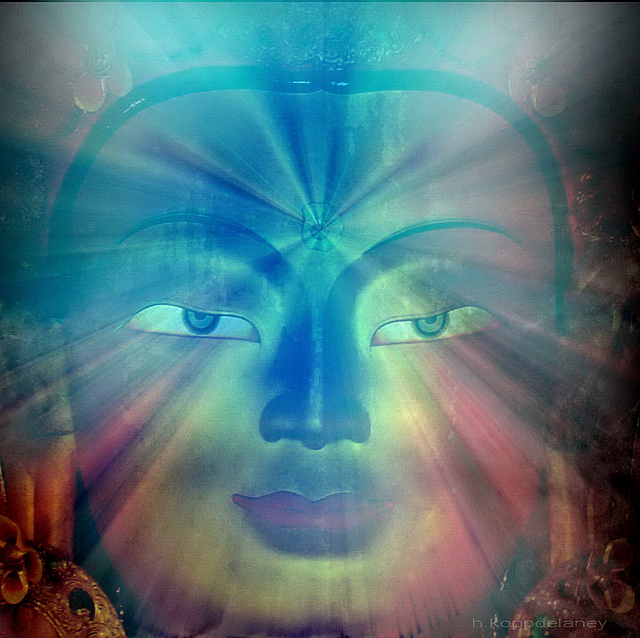It is true that the ego is the source of all our suffering because we always have the final say in how we think and feel.
Yet it’s not just the cause of one’s pain; it’s the way we sense of our Self and so it is also the key to where our contentment and happiness are found.
The core definition of the ego is that it’s our “I-ness.” That means all of our thoughts, beliefs, memories and emotions—both good and bad—are captured within it. In addition, the neurology located throughout our body-brain, including in our gut and heart, doesn’t generate our consciousness, but designs and attracts it from consciousness itself.
However, there are some teachings that suggest we should “transcend our ego” or undertake an ego death. This is misguided and unhelpful. It’s also literally impossible whilst we’re a living human being. The ego is simply a mechanism that filters our individual snapshot of interconnected awareness to manifest the version that we experience of ourselves.
It’s an ally, not the enemy.
What we should be doing is empowering and enlightening it, not pretending that it can transcend itself. If we believe that we should “overcome the ego,” then we’ve utilized our ego to form a judgement that is illogical, since without it there’s no context to believe anything in.
In its most pure form, a judgement is simply an assessment and conclusion. Therefore, there’s nothing inherently good or bad about judging; we have the power to determine if our conclusions are realistic and healthy, or the opposite. For example, calling a duck a duck is fair and accurate. We did an analysis and judged it as a duck. Simple.
But if our conclusion condemns it because it’s a duck, then we’ve brought in an unhealthy ego aspect to our judgement.
Nevertheless, the ego-bashing needs to stop. Every experience, with no exception, is filtered through our ego. It doesn’t matter if someone is talking about their divine experience of love, god, spirit, etc.; all of it is filtered through the egoic human anchor.
The removal or transcendence of particular aspects of the ego, such as cultural conditioning and personal beliefs, can obviously occur through practices such as meditation and psychedelic adventure, but it still remains fundamentally in place.
It’s our human snapshot of infinity…so until we die, every person that has ever existed have their egos intact.
Of course we are interdependently connected with all life, regardless if we view it through the lens of ecology, quantum physics or the many spiritual traditions that make this wisdom clear. However, we have different layers for a good purpose. For example, the human experience is to learn, and therefore grow in energy.
Let’s use a fire as an analogy to understand further. The fire is the totality of reality, our flame is our soul, or energetic blueprint, and our flames heat is our ego. The fire is of course the unity of reality which there are many different terms for, such as God, Mind, quantum zero-point field, energy, collective unconscious or the spiritual conception of cosmic consciousness, to name but a few.
There’s plenty more too, and each are as valid as each other.
So the ego is simply our humanness; how healthy and functional we make ourselves is simply up to us. We can also train our ego to understand that its separateness is a mirage, but that’s not transcending itself, that’s enlightening itself.
Whilst we’re on this subject too, when we understand that our supposed disconnection is an illusion, that doesn’t mean that it’s not really real, it’s just not as real as what it can get. Our human incarnation is an experience, making it very real, there’s just many layers of finite truth in the infinity of existence.
With this insight, we immediately feel a greater purpose.
Final Thoughts
We just need to accept it and stop fighting it; the ego is a necessary feature of this experience. It helps to maintain a separate but real self, even if it is fundamentally illusory, so that we can survive and potentially thrive in the third dimensional construct that we find ourselves in. So it’s not going anywhere, nor do we want it to.
Ultimately, the aim should be to have a healthy, functional, content and loving ego which explores the spirit of life.
Expand it. Empower it. Enlighten it.
It should also have a balanced attachment to itself, which means it should be attached in ways that is practical for its existence but not attached in ways that reinforces the pain and suffering of itself and others.
Nurture it, not reject it.
Author: Phillip J Watt
Editor: Renée Picard
Image: Hartwig HKD at Flickr












Read 8 comments and reply